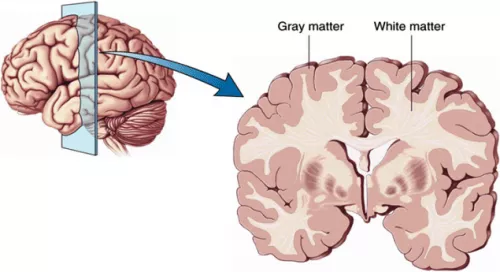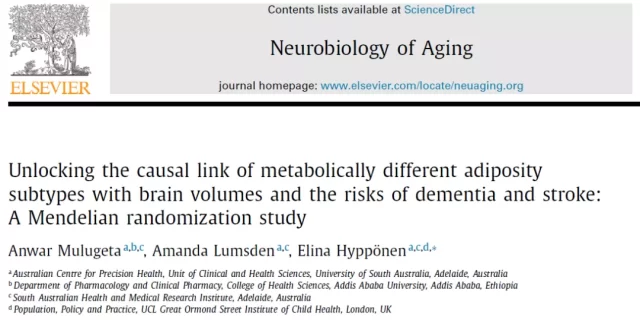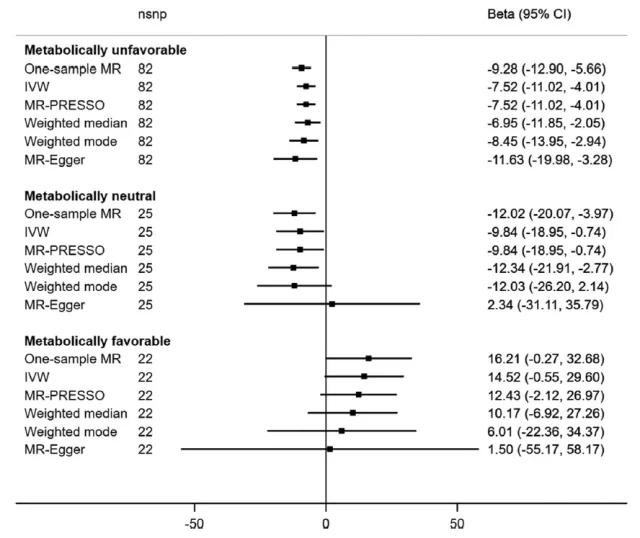Obesity causes Brain Damage and Increased Dementia Risk
- Normal Liver Cells Found to Promote Cancer Metastasis to the Liver
- Nearly 80% Complete Remission: Breakthrough in ADC Anti-Tumor Treatment
- Vaccination Against Common Diseases May Prevent Dementia!
- New Alzheimer’s Disease (AD) Diagnosis and Staging Criteria
- Breakthrough in Alzheimer’s Disease: New Nasal Spray Halts Cognitive Decline by Targeting Toxic Protein
- Can the Tap Water at the Paris Olympics be Drunk Directly?
Obesity causes Brain Damage and Increased Dementia Risk
- Should China be held legally responsible for the US’s $18 trillion COVID losses?
- CT Radiation Exposure Linked to Blood Cancer in Children and Adolescents
- FDA has mandated a top-level black box warning for all marketed CAR-T therapies
- Can people with high blood pressure eat peanuts?
- What is the difference between dopamine and dobutamine?
- How long can the patient live after heart stent surgery?
Obesity causes Brain Damage and Increased Dementia Risk.
In today’s society, with the development of economy and the improvement of living standards, obesity has become a major public health problem all over the world.
According to the World Health Organization (WHO) , nearly 2 billion people are overweight or obese in the world. From 1975 to 2016, the global obesity rate has nearly tripled, and the number of deaths caused by overweight or obesity is as high as 2.8 million each year.
In fact, obesity is both a feature and a disease. Obese people are not only inconvenient to live and have reduced exercise capacity, but also are more prone to metabolic diseases and cardiovascular and cerebrovascular diseases .
In addition, many studies have shown that obesity is associated with more than a dozen cancers. Increased risk of morbidity is associated with decreased prognosis and survival .
Gray matter is an important part of the brain responsible for executive control, muscle and sensory activity, as well as learning, attention and memory.

In July 2021, researchers from the University of South Australia published a research paper titled: Unlocking the causal link of metabolically different adiposity subtypes with brain volumes and the risks of dementia and stroke: A Mendelian randomization study in the journal Neurobiology of Aging .
The study used Mendelian randomisation to examine genetic data from up to 336,000 individual records in the UK Biobank , which contained self-reported information and linked hospital and death registry information.
It was found that for every 1 kg/m2 increase in body mass index (BMI) (equivalent to 3 kg for a person with an average height of 173 cm), the gray matter of the middle-aged and elderly (37-73 years old) decreased by 0.3%.
This suggests that obesity is linked to shrinking gray matter in the brain, reminding us of new harmful effects of obesity: damage to brain health and increased risk of dementia. It also suggests that improving metabolic-related obesity can contribute to brain health.

The authors divide obesity into three subtypes, namely metabolically unfavorable obesity (both BMI and waist-to-hip ratio increase) , metabolically neutral obesity (increased BMI only) , and metabolically favorable obesity (increased BMI and decreased waist-to-hip ratio) .
All three metabolically distinct obesity subtypes have higher body mass index (BMI) , but each subtype has a different distribution of body fat and visceral fat, and therefore a different risk of cardiometabolic disease.
The research team then used Mendelian randomization to examine genetic data from up to 336,000 individual records in the UK Biobank , which contained self-reported information and linked hospital and death registry information.
People with higher levels of obesity, especially those with metabolically unfavorable obesity (both increased BMI and waist-to-hip ratio) and metabolically neutral obesity (increased BMI alone) , were found to have lower levels of brain gray matter volume.
Specifically, for every 1 kg/m2 increase in body mass index (BMI) (equivalent to 3 kg for a person with an average height of 173 cm), the gray matter of the middle-aged and elderly (37-73 years old) decreased by 0.3%. This suggests that these individuals may have impaired brain function.

This suggests that obesity is linked to shrinking gray matter in the brain, reminding us of new harmful effects of obesity: damage to brain health and increased risk of dementia. It also suggests that improving metabolic-related obesity can contribute to brain health.
Reference:
https://doi.org/10.1016/j.neurobiolaging.2021.02.010
Obesity causes Brain Damage and Increased Dementia Risk
(source:internet, reference only)
Disclaimer of medicaltrend.org
Important Note: The information provided is for informational purposes only and should not be considered as medical advice.



